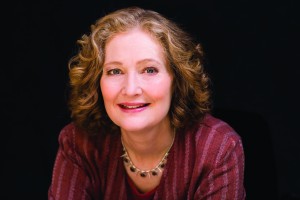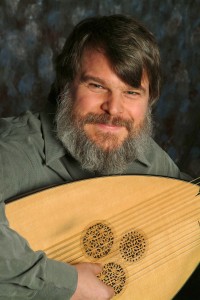Concert Review: Kirkby and O’Dette do dazzling Dowland
Dame Emma, now sixty-four, sat and sang just quietly enough and with the right measure of mystery and stillness to draw the audience in, and to keep them there in a trance.
By Susan Miron
There may be a better way to kick off the summer music season than by enjoying the semiannual Boston Early Music Festival (this year from June 9-16), but I can’t think of any. There is an embarrassment of riches in terms of concerts, “fringe” concerts, lectures, master classes, exhibits, and their big opera production. One needs several weeks to catch even part of what has been offered the past few days, and even then much would be missed because, after a while, all those 11 p.m. concerts make one need some rest.
The core players seem never to rest. Monday night at Jordan Hall, Dame Emma Kirkby gave a beautiful, if lachrymose, all-Dowland recital at Jordan Hall with the BEMF co-director, lutenist Paul O’Dette. Their duo concert was doubtless inspired by the 450th anniversary of the birth of the incomparable British writer of songs and heart-melting lute tunes, John Dowland. Entitled “Time Stands Still,” the recital was taken from four books of Dowland’s songs, but although they were written over a period of fifteen years, the overarching themes are dour ones—loss, pain, fear, anguish.
Dame Emma, now sixty-four, sat and sang just quietly enough and with the right measure of mystery and stillness to draw the audience in, and to keep them there in a trance. She sings with little or no vibrato, as suits the style, but she can perform a mean melisma (many notes to a syllable of text), and she captured the grief behind the text perfectly in song after sorrowful song. Paul O’Dette played the lute as beautifully as I have ever heard him. There were few songs or pieces that were in a major key or that moved along. Lots of farewells, sorrow, time standing still or being asked to do so, lots of tears—it was the Dowland hit parade without the happier songs like “There was a lover and his lass.” Occasionally, Dame Emma would stand up to sing, signaling a change of mood, but soon would plunge back into Dowland’s dark world of grief.
O’Dette probably could play his Dowland solos in his sleep, so central is Dowland to the lute literature. His playing was full of elegant ornamentation and expressivity, especially in the very famous “Lachrymae”—so beloved by another British composer, Benjamin Britten, four centuries later, that he embedded two of its themes (“Flow my Tears” from the Second Book of Songs is one of them) in a piece for viola and piano, “Lachrymae: Reflections on a Song of Dowland.”
Dowland’s motto, “Semper Dowland, sempers dolens” (“Always Dowland, always sorrowful”), pithily describes the music on this concert, yet leaves out the ineffable beauty that makes his music endure. With beauty—and grief—little changes over the centuries.
Tagged: Boston Early Music Festival, Dame Emma Kirkby, John Dowland


